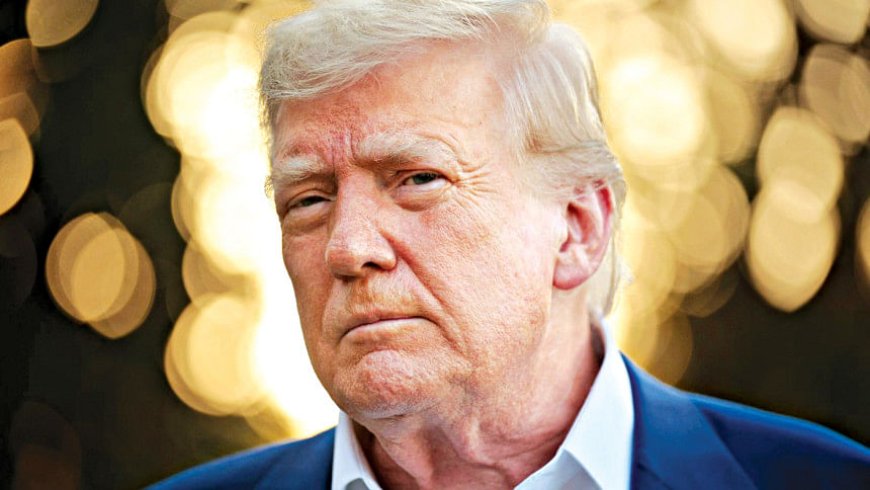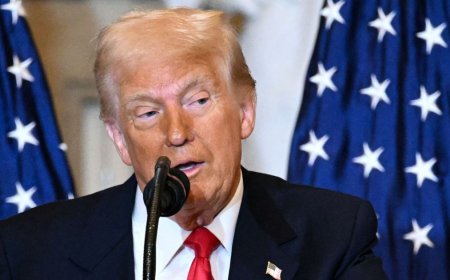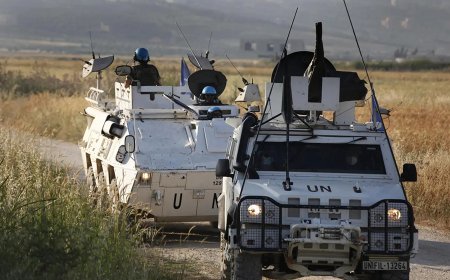Trump Hints at Iran Talks Next Week, Claims Nuclear Program Pushed Back ‘Decades’
Former President Donald Trump announced Wednesday that the United States would engage in nuclear talks with Iran next week, hinting at the potential for a deal despite his earlier claims that recent U.S. strikes had severely damaged Iran’s nuclear program.

Trump Touts Strikes on Iran, Hints at Upcoming Nuclear Talks
Former U.S. President Donald Trump on Wednesday claimed that unprecedented American strikes had “totally obliterated” Iran’s nuclear program, asserting that the attacks had set Tehran back by “decades.” However, leaked U.S. intelligence reports suggested a far more modest impact, estimating only a few months' delay in Iran’s nuclear progress.
The strikes occurred during a 12-day war between Iran and Israel — their deadliest confrontation to date — in which Israel targeted nuclear and military sites, while Iran responded with repeated missile barrages. The U.S. intervened in support of Israel, launching bunker-buster bomb attacks on two Iranian nuclear facilities over the weekend and striking a third with a submarine-launched guided missile.
“They're not going to be building bombs for a long time,” Trump told reporters, adding that the ceasefire — which he announced Tuesday — was “going very well.” He said both Iran and Israel were "tired" and “exhausted,” and confirmed that talks with Iran were planned for the following week. “We may sign an agreement. I don't know,” Trump said. “If we don’t, that’s fine too.”
Iranian President Masoud Pezeshkian, meanwhile, expressed readiness to resume nuclear negotiations but reaffirmed Tehran’s right to peaceful atomic energy.
Conflicting Assessments
Israel's military cautioned on Wednesday that it was still too early to gauge the full impact of the strikes on Iran’s nuclear capabilities. Israeli military spokesperson Effie Defrin stated the offensive had dealt a significant blow and likely delayed the program by “several years.”
Iran’s foreign ministry acknowledged serious damage to its nuclear sites. However, U.S. media citing a Defense Intelligence Agency report said that although access to some facilities was blocked, Iran's centrifuges and enriched uranium stockpiles were not completely destroyed.
Israel launched the offensive on June 13, aiming to prevent Iran from acquiring nuclear weapons — an ambition Tehran has repeatedly denied.
Diplomatic Fallout
After the ceasefire, Israeli Prime Minister Benjamin Netanyahu declared the nuclear threat "thwarted" and warned that any Iranian efforts to rebuild the program would be met with similar force.
Iran’s parliament responded by voting to suspend cooperation with the International Atomic Energy Agency (IAEA), criticizing the watchdog for failing to condemn the attacks. The decision still awaits approval from the powerful Guardian Council.
Iranian Foreign Minister Abbas Araghchi warned in an interview that such attacks would have “serious and profound repercussions” for the country's future nuclear stance. He said Iran would remain in the Non-Proliferation Treaty but hinted that its commitment to the current regime may change.
Aftermath on the Ground
Though Iran and Israel have long been engaged in covert hostilities, the recent conflict marked their most destructive encounter. Israeli strikes reportedly killed 627 civilians and injured over 4,800, while Iran’s missile attacks left 28 Israelis dead.
In Iran, life began to cautiously return to normal on Wednesday, though many businesses remained closed. “Thank God, things are getting better,” said Saeed, a 39-year-old salesman in Tehran. Others, like Amir, 28, who fled to the Caspian Sea coast, were less optimistic. “I really don’t know if the ceasefire will hold.”
In Israel, some welcomed the lull in violence. “Finally, we can sleep peacefully,” said Yossi Bin, a 45-year-old engineer in Tel Aviv. “We feel safer — for the kids, for the family. I just hope it lasts.”
What's Your Reaction?






















































































